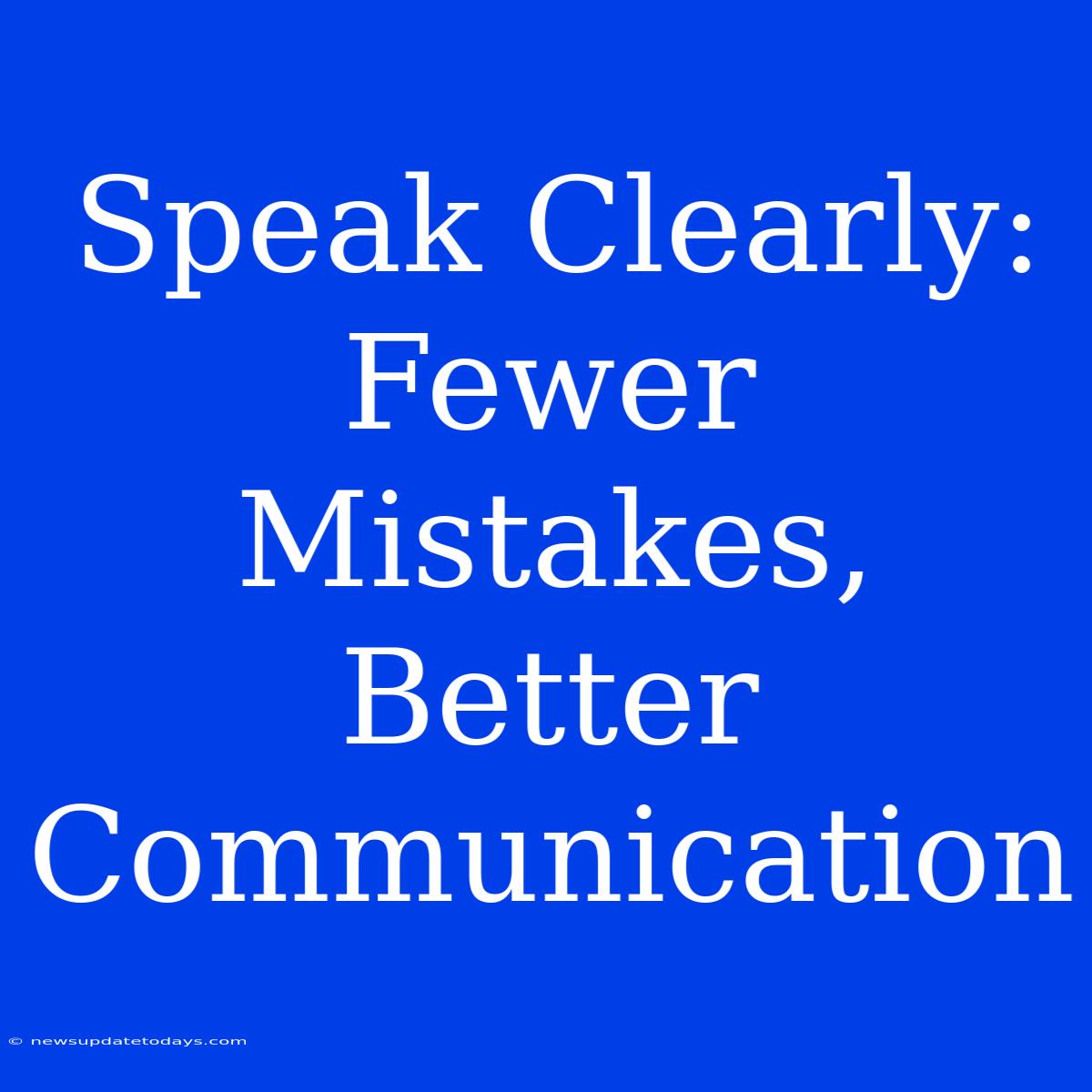Speak Clearly: Fewer Mistakes, Better Communication
Clear communication is the cornerstone of success in both personal and professional life. Mumbling, unclear pronunciation, and grammatical errors can hinder your ability to connect with others and effectively convey your message. This article will explore practical strategies to improve your speaking clarity, reducing mistakes and fostering better communication.
Understanding the Importance of Clear Speech
Why is clear speech so crucial? It's simple: when you speak clearly, you are understood. This seemingly obvious point has far-reaching consequences:
- Stronger Relationships: Clear communication builds trust and strengthens relationships. When people understand you, they feel respected and heard.
- Increased Productivity: In the workplace, clear communication streamlines processes, reduces misunderstandings, and boosts efficiency. Ambiguous instructions lead to errors and wasted time.
- Enhanced Confidence: Speaking clearly builds confidence. Knowing you are being understood empowers you to express yourself more freely and confidently.
- Improved Opportunities: Clear communication opens doors to opportunities. Whether it's a job interview, a presentation, or a networking event, the ability to articulate your thoughts effectively is a valuable asset.
Practical Steps to Improve Your Speaking Clarity
Improving your speaking clarity is a journey, not a destination. Here are some actionable steps you can take:
1. Focus on Pronunciation:
- Identify problem sounds: Pay attention to sounds you consistently struggle with. Record yourself speaking and listen critically.
- Practice tongue twisters: Tongue twisters are a fun way to improve articulation and mouth muscle coordination.
- Slow down: Speaking slowly allows you to articulate each word clearly. Resist the urge to rush.
- Use a mirror: Practice speaking in front of a mirror to observe your mouth movements and identify areas for improvement.
2. Improve Articulation:
- Open your mouth wider: This allows for clearer sound production.
- Use your diaphragm: Breathing deeply from your diaphragm provides more air support, leading to clearer and more resonant speech.
- Enunciate your words: Pay attention to each syllable and pronounce them distinctly.
3. Enhance Grammar and Vocabulary:
- Read widely: Reading expands your vocabulary and exposes you to proper grammar usage.
- Use a grammar checker: Utilize online tools or apps to identify and correct grammatical errors in your writing. This will improve your speaking as well.
- Practice speaking formally: Practice speaking in a more formal setting to improve your grammar and sentence structure.
4. Practice Regularly:
- Record yourself: Regularly record yourself speaking and analyze your performance.
- Seek feedback: Ask trusted friends, family, or colleagues for feedback on your speaking clarity.
- Join a speaking club: Consider joining a public speaking club like Toastmasters to improve your skills in a supportive environment.
The Benefits of Clear Communication Extend Far Beyond the Spoken Word
While this article focuses on spoken clarity, remember that strong communication skills encompass written communication as well. The principles of clear, concise, and well-structured expression apply across all forms of communication.
By implementing these strategies and consistently practicing, you can significantly improve your speaking clarity, reduce mistakes, and experience the numerous benefits of effective communication. Remember, clear communication is a skill that can be learned and honed over time. The effort you put in will be well worth it.

